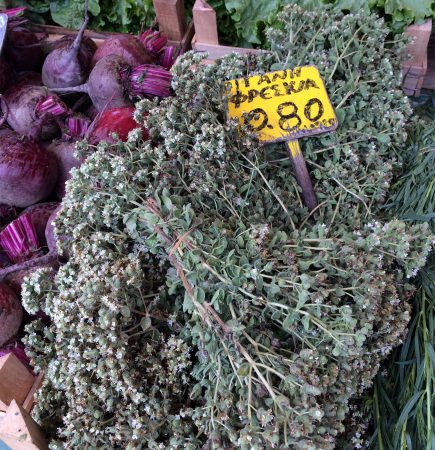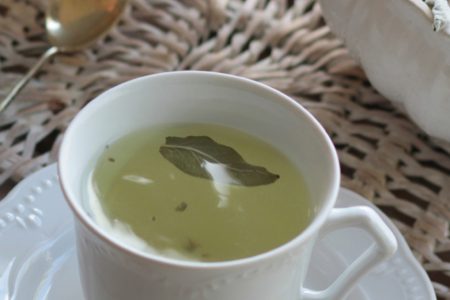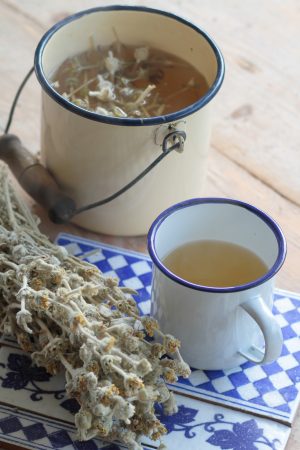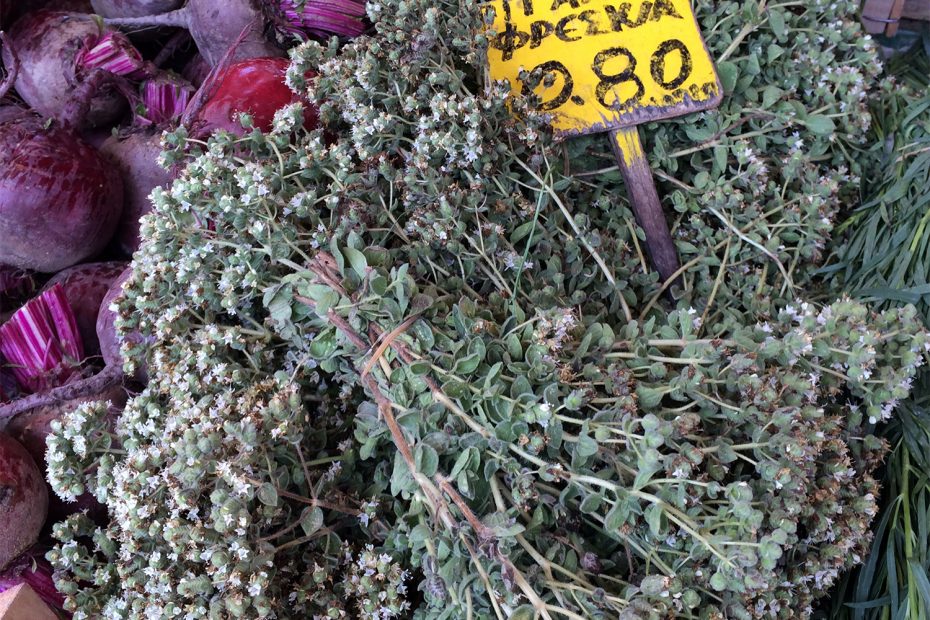
Dried Greek Oregano
Herbs are a vital part of what makes the Mediterranean Diet so flavorful but also so healthy, despite sometimes being overlooked as mere seasonings. They also play a singular role in traditional Greek medicine. Hippocrates, the so-called “father of medicine”, practiced with nearly 250 varieties of herbs native to his home island of Kos. Modern medicine has relied less and less on Mother Nature to promote healing and wellness, but we’re seeing a resurgence of interest in the wondrous health properties of these amazing plants. Greek cuisine, too, is inseparable from its liberal use of herbs. Today, I’m focusing on few favorite herbs and their impressive health properties. All of these plants are native to Greece and can be found growing wild on hillsides, perfuming the air with their fragrant aromas.
Oregano, meaning “mountain joy”, is one of the quintessential Greek herbs. Greek brides and grooms would traditionally be crowned with laurels of oregano during their weddings. Oregano is such a defining flavor of Greek cuisine, it’s hard to imagine a dish that doesn’t incorporate it somehow. And this is a good thing because oregano has a host of health benefits. It’s very concentrated in antioxidants [1], which fight cellular damage related to all kinds of chronic diseases ranging from cancer to diabetes to cardiovascular disease. And it also has antiviral [2] and antibiotic properties [3], which the Greeks must have picked up on because its essential oils have long been used as a folk remedy to treat colds and infections. Still, as with all foods, the best way to take advantage of oregano’s health benefits is to incorporate it into your regular diet, and luckily, it’s really versatile. You can add oregano fresh or dried to everything from pastas sauces, salad dressings, marinades—the list goes on. And as I always believe, Greek is best. Greek oregano is much more flavorful than Italian or Mexican, and a little goes a long way.

Thyme is another native herb that has been valued for millennia. In addition to its culinary use, the ancient Greeks enjoyed it as a fragrance, and even today you can find lots of personal care products made with thyme. Like other herbs, thyme is rich in antioxidants [7], and it also has antibiotic properties [8]. Thyme has delightful lemon and floral notes, so it can enhance a range of dishes like fish, soups, and chicken.

Mountain tea, sideritis, aka tsai tou vounou.
And now for an herb that you may not know of, “tsai tou vounou” or Greek Mountain Tea. Greek shepherds have enjoyed this herbal tea while shepherding flocks of sheep on the Greek mountainsides for ages. It comes from the sideritis plant that only grows in elevations above 3000 feet. The leaves and flowers are harvested, dried and then boiled to make a smooth, herbaceous, and slightly floral herbal tea. This amazing herb is so packed with antioxidants that it has actually been shown to be as potent as green tea at reducing oxidative stress [9]. But fortunately, it’s much more enjoyable than green tea and naturally caffeine free. It’s soothing as a cup of hot tea but also makes a delightful iced tea when chilled with a bit of honey and sliced lemon for some extra vitamin C.
Finally, chamomile is another popular (and maybe the most popular) herbal tea beloved by the Greeks. The name chamomile is derived from the Greek term “earth apple”, so called because of its subtle apple aroma. Wild Greek chamomile has such a concentrated aroma and flavor that just can’t be compared to a stale, supermarket tea bag. This delicate little flower also has some truly impressive healing properties. Its concentrated phytonutrients can help in improving cardiovascular conditions, stimulate the immune system, and provide some protection against cancer [10]. It’s long been used as a soothing sleep aid, too, before bed.
I could go on, but it’s clear that herbs are more than seasonings—they nurture our bodies as well as our senses. If you’ve only been incorporating herbs as a pinch here and there, consider giving them a starring role in your food and drink to enjoy the full benefits of a Mediterranean Diet.
**Disclaimer: This content does not constitute personalized medical or nutritional advice. Any blog readers should seek their own medical advice before making any decisions related to their nutrition and health.
[1] https://www.ncbi.nlm.nih.gov/pubmed/8933203
[2] https://www.ncbi.nlm.nih.gov/pubmed/24779581)
[3] https://www.ncbi.nlm.nih.gov/pmc/articles/PMC4400296/
[4] https://www.ncbi.nlm.nih.gov/pubmed/19865527
[5] https://www.ncbi.nlm.nih.gov/pubmed/29333341
[6] https://www.ncbi.nlm.nih.gov/pubmed/21630133
[7] https://www.ncbi.nlm.nih.gov/pmc/articles/PMC6099726/
[8] https://www.ncbi.nlm.nih.gov/pmc/articles/PMC4400296
[9] https://brunswicklabs.com/blog/greek-mountain-tea-sideritis-l-functional-components-and-biological-activity/






